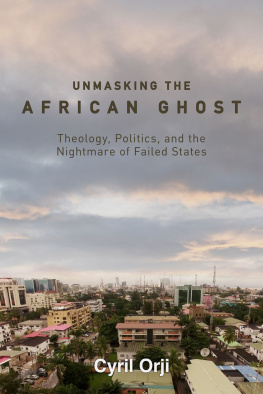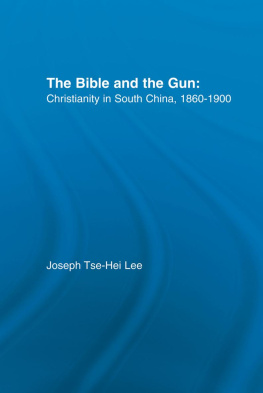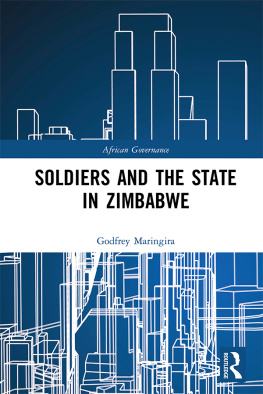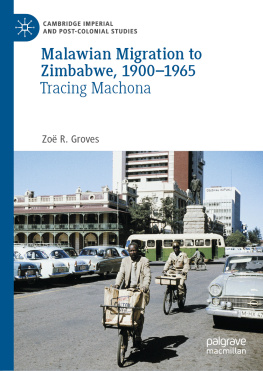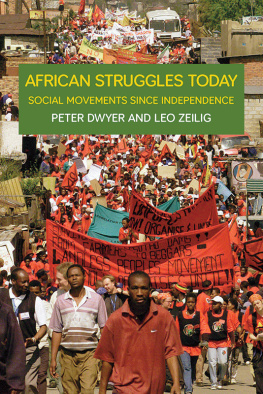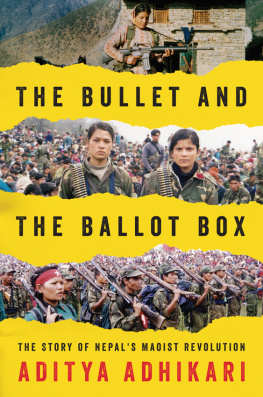
The Bible, the Bullet, and the Ballot
Zimbabwe: The Impact of Christian Protest in Sociopolitical Transformation, ca. 1900 ca. 2000
Fabulous Moyo
THE BIBLE, THE BULLET, AND THE BALLOT
Zimbabwe: The Impact of Christian Protest in Sociopolitical Transformation, ca. 1900 ca. 2000
African Christian Studies Series
Copyright 2015 Fabulous Moyo. All rights reserved. Except for brief quotations in critical publications or reviews, no part of this book may be reproduced in any manner without prior written permission from the publisher. Write: Permissions, Wipf and Stock Publishers, 199 W. 8th Ave., Suite 3, Eugene, OR 97401.
Pickwick Publications
An Imprint of Wipf and Stock Publishers
W. th Ave., Suite
Eugene, OR 97401
www.wipfandstock.com
isbn 13: 978-1-62032-723-4
isbn 13: 978-1-63087-911-2
Cataloguing-in-Publication data:
Moyo, Fabulous.
The Bible, the bullet, and the ballot : Zimbabwe: the impact of Christian protest in sociopolitical transformation, ca. 1900ca. 2000 / Fabulous Moyo.
xvi + pp. ; cm. Includes bibliographical references.
African Christian Studies Series
isbn 13: 978-1-62032-723-4
. BibleStudy and teachingZimbabwe. I. Title. II. Series.
BR1447 .M69 2015
Manufactured in the U.S.A.
African Christian Studies Series (AFRICS)
This series will make available significant works in the field of African Christian studies, taking into account the many forms of Christianity across the whole continent of Africa. African Christian studies is defined here as any scholarship that relates to themes and issues on the history, nature, identity, character, and place of African Christianity in world Christianity. It also refers to topics that address the continuing search for abundant life for Africans through multiple appeals to African religions and African Christianity in a challenging social context. The books in this series are expected to make significant contributions in historicizing trends in African Christian studies, while shifting the contemporary discourse in these areas from narrow theological concerns to a broader inter-disciplinary engagement with African religio-cultural traditions and Africas challenging social context.
The series will cater to scholarly and educational texts in the areas of religious studies, theology, mission studies, biblical studies, philosophy, social justice, and other diverse issues current in African Christianity. We define these studies broadly and specifically as primarily focused on new voices, fresh perspectives, new approaches, and historical and cultural analyses that are emerging because of the significant place of African Christianity and African religio-cultural traditions in world Christianity. The series intends to continually fill a gap in African scholarship, especially in the areas of social analysis in African Christian studies, African philosophies, new biblical and narrative hermeneutical approaches to African theologies, and the challenges facing African women in todays Africa and within African Christianity. Other diverse themes in African Traditional Religions; African ecology; African ecclesiology; inter-cultural, inter-ethnic, and inter-religious dialogue; ecumenism; creative inculturation; African theologies of development, reconciliation, globalization, and poverty reduction will also be covered in this series.
Series Editors
Dr Stan Chu Ilo (St Michaels College, University of Toronto)
Dr Philomena Njeri Mwaura (Kenyatta University, Nairobi, Kenya)
Dr Afe Adogame (University of Edinburgh)
To my father
Jairos
And mother
Annah
For everything
Abbreviations
AIC African Initiated/Independent Churches
ANC African National Congress (South Africa)
ANC African National Council (Zimbabwe)
ATR African Traditional Religion/s
BCC British Council of Churches
BSAC British South Africa Company
BSAP British South Africa Police
CAP Central Africa Party
CCR Christian Council of Rhodesia
CPP Convention Peoples Party
DRC Dutch Reformed Church
FRELIMO Frente de Libertacao de Mocambique
FROLIZI Front for the Liberation of Zimbabwe
LMS London Missionary Society
LOMA Law and Order Maintenance Act
LTA Land Tenure Act
MDC Movement for Democratic Change
NAZ National Archives of Zimbabwe
NDP National Democratic Party
NGK Nederduits Gereformeerde Sending-Kerk
RATU Rhodesia African Trade Union
RICU Reformed Industrial and Commercial Workers Union
SACC South African Council of Churches
SRANC Southern Rhodesia African National Congress
SRCC Southern Rhodesia Christian Council
TTL Tribal Trust Lands
UANC United African National Council
UCM University Church Movement
UDI Unilateral Declaration of Independence
WCC World Council of Churches
ZANLA Zimbabwe African National Liberation Army
ZANU Zimbabwe African National Union
ZANU PF Zimbabwe African National Union Patriotic Front
ZAPU Zimbabwe African Peoples Union
ZIPA Zimbabwe Peoples Army
ZIPRA Zimbabwe Peoples Revolutionary Army
Introduction
Personally I believe the European has a god in whom he believes and whom he is representing in his churches all over Africa. He believes in the god whose name is spelt Deceit. He believes in a god whose law is ye strong, you must civilise the barbarous Africans with machine guns. Ye Christian Europeans you must Christianize the pagan Africans with bombs, poison gases, etc!
In the colonies the Europeans believe in the god that commands Ye administrators, make Sedition Bill to keep the African gagged, make Deportation Ordinance to send the Africans to exile whenever they dare to question your authority make an ordinance to grab his money so that he cannot stand economically.
Overall Field of Study
W ritten by the Sierra Leonean journalist, activist and politician Isaac TA Wallace-Johnson ( 1895 1965 ) and published in Ghanas African Morning Post in 1936 by Nnamdi Azikiwe ( 1904 1996 ), who would later become Nigerias first African President, the article led to the detention of both men by Ghanas colonial government. In the cradle of African nationalism, this expression of African sociopolitical grievances depicted Christianity as expressly part of the colonial machinery. The stance of Wallace-Johnson and Azikiwes highlights the growing strength of African feeling in the middle decades of the twentieth century about the relationship between Christianity and colonialism, which was shared by participants in movements for African independence, and was reflected in the work of later scholars.
This work explores the vexed relationship between Christianity and colonialism, especially in the last twenty years of white rule in what is now Zimbabwe., and institutions to which Christians belonged, to the questions of universal suffrage and the armed struggle will be of particular concern. Between these three fundamental issues, the Bible representing Christianity, the Bullet representing the armed struggle, and the Ballot universal suffrage or the struggle for democracy, there was a complex interplay.


